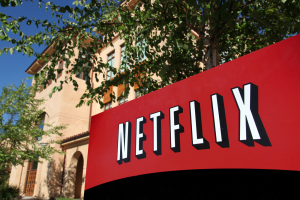I have noticed recently a number of articles that have been written  about the business model of Netflix and how they have dominated the live-streaming entertainment business. They shut-down Blockbuster. We are watching a rearrangement of cultural desires and patterns of life taking place before our eyes. We are given front-row access to this shift in our culture. So what does Netflix have to do with the church? Is there anything that we can take away from this cultural shift that is occurring?
about the business model of Netflix and how they have dominated the live-streaming entertainment business. They shut-down Blockbuster. We are watching a rearrangement of cultural desires and patterns of life taking place before our eyes. We are given front-row access to this shift in our culture. So what does Netflix have to do with the church? Is there anything that we can take away from this cultural shift that is occurring?
I do believe there are some take-aways from the business model of Netflix and how it is impacting every aspect of our culture. Here are a few observations.
- We consume content on our terms – think about that for just a moment. Live-sports venues are about the only time that someone else’s schedule is OK with us. Otherwise technology has given us options of when, how, and whose content, commercial free, we will even listen to. Also we have the capacity to stop and start content so that it fits our rhythm of life.
- There are two subcategories that emerge – one being that our traditional time-slots for doing church is up against the flexibility of people’s lives. Secondly, evidence seems to point out that relationships and mission are going to be more important than singing and preaching in the coming years.
- Content consumption is personal – technology allows content to be available on multiple platforms and devises. I may start content consumption on my computer, continue in my car’s bluetooth capacity, and conclude it at Starbucks on my phone.
- With this new freedom people consume religious content in much the same way – multiple platforms and time schedules.
- Also there is a great opportunity to call people to a higher purpose. Mission focused, mission driven churches will draw people who are longing for something bigger and more significant than themselves.
- People pay for content they do not use, until one day they won’t – It is an interesting phenomena currently. People are paying for cable television they do not watch because it does not fit their life-style rhythm. Until one day people, just like me, decide to stop paying for something that does not meet the need any longer. Netflix has changed the playing field on content consumption.
- I have noticed a shift in just recent years on church attendance patterns from people that I call stable solid Christians. The freedom to consume content and the various platforms on which it will be consumed gives people new choices that did not exist.
- Could it be that if our church only offers minimal set times to consume religious content that we may wake up and realize that people may not keep something that is not used that often.
- If the churches content is that good, then we need to discover multiple ways to make available that content, yet while challenging people to purposes that are bigger than themselves.
I have declared for years that the way we do church today is not the way church will be done at the end of time. I know that our traditions are sacred to us and we are willing to stand up and be heard. I will say that the changing perceptions of the church and the changing patterns of life should force a new dialogue on what is the main reason for the churches existence? That is a question for future blog posts.
Leave a comment below or use the voice message at the right. Let me know what you think on this subject. Consider your own patterns of content consumption and see if things have not already changed in your life. Let’s talk!
I’m glad you mentioned the words “our traditions” toward the end of your post. It was this very ideology that caused Jesus to say “By your tradition you make the Word of God of no effect” (Mark 7:13). If over 70% of America says the church has completely lost its’ effectiveness, then perhaps it is those very ‘traditions’ we should examine in light of God’s revealed Truth in the Scripture.
Thanks David for your comments. While I may not like this type of data – at some point we must stop and start asking some piercing questions regarding our own traditions and their effectiveness. We do not low how to do anything new until we have done it the first time!